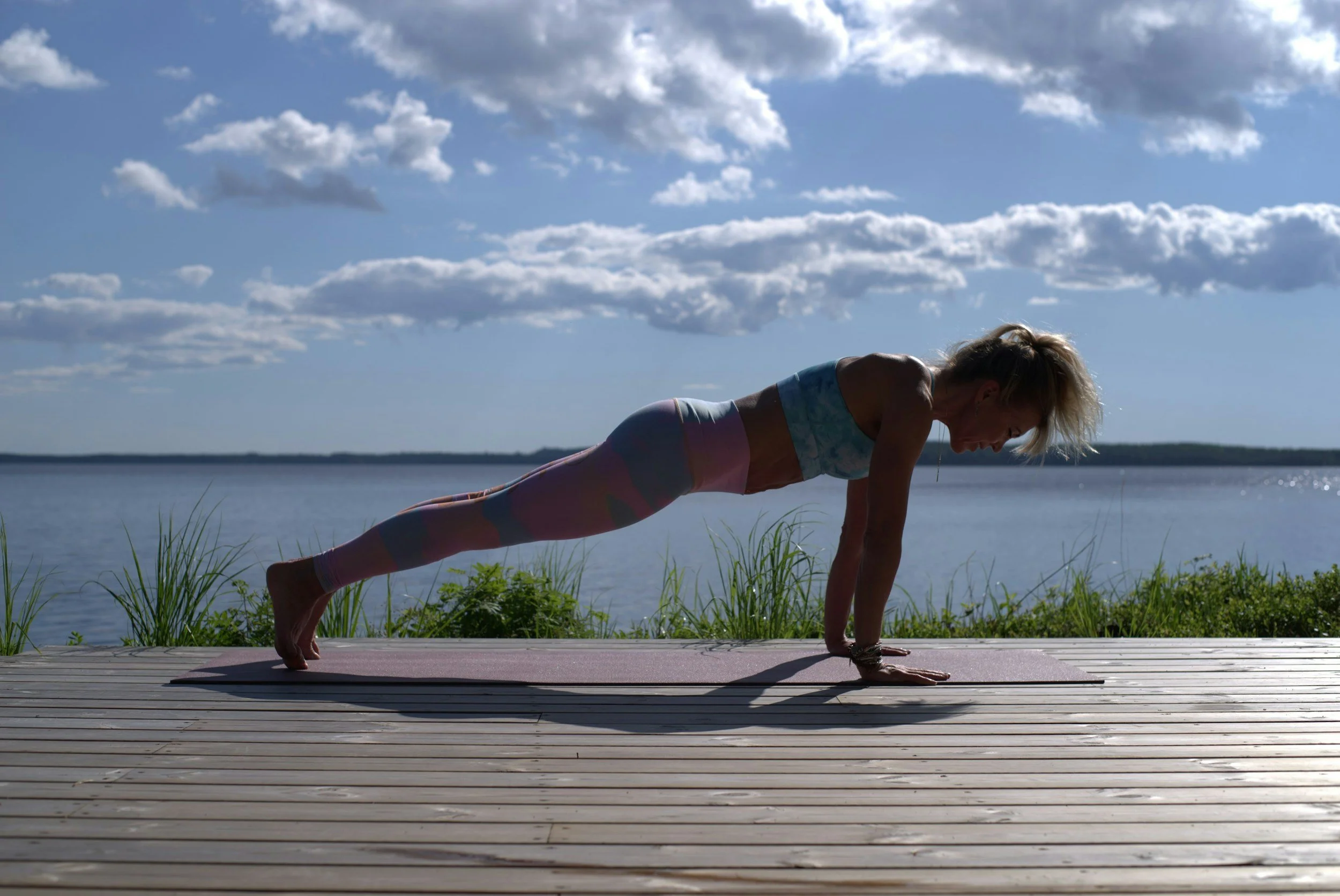
Welcome to our blog!


Do You Really Need a Knee Replacement? What Most People Aren’t Told About Knee Pain
Many people believe a knee replacement is their only option once arthritis or a meniscus tear shows up on imaging. But that’s not the full story. Research shows that strength training and proper movement strategies can significantly improve how your knees feel and function — often helping you delay or even avoid surgery altogether.

What Back Spasms Are Really Telling You (And Why Medication Isn’t the Whole Answer)
Back spasms can feel sudden and severe, but they’re rarely a sign of serious damage. In this article, we break down why back spasms happen, what they really mean, and how a movement-based approach can help you recover quickly — and prevent them from coming back.

Why Your Pain Might Not Match Your MRI
Your MRI shows a disc herniation or a torn meniscus—but the pain changes when you move differently. What gives? In this post, we explore why pain doesn’t always match the picture on your scan, and how changing the way you move can be the key to feeling better.

Why Consistency Beats Perfection: The Key to Successful Rehab Outcomes
What separates patients who succeed in rehab from those who stall out? It’s not the perfect plan — it’s consistent follow-through. In this post, we break down why small daily efforts matter more than perfection, and how just 30 minutes a day can transform your recovery. If you’re ready to take ownership of your progress, start here.

Can AI Fix Your Back Pain? We Put ChatGPT to the Test
We tested ChatGPT to see how well it could guide someone with recurring low back pain. The results? Helpful in some ways—but with some major blind spots. If you've been relying on AI or internet advice to solve pain that keeps coming back, this article explains when it might help—and when it definitely won't.

Why You Should Train Like a Sherpa, Not a Mountaineer: A Long-Term Approach to Pain Recovery and Lifelong Fitness
Most people approach recovery and fitness with a “summit” mindset—focused on short-term wins. But real progress comes from a sherpa’s perspective: slow, steady, and sustainable. In this post, we break down how to shift your mindset, avoid chronic flare-ups, and build a body that keeps you moving for decades to come.

Why Shifting from “Workouts” to a “Movement Practice” Can Improve Recovery and Long-Term Results
If your workouts—or your recovery—have started to feel like just another task on your to-do list, it might be time to shift your mindset. Reframing movement as a practice instead of a performance can help you reconnect with your body, find more joy in the process, and make meaningful progress—whether you’re training hard or rehabbing an injury.

Movement Snacks for Moms: Small Moments That Make a Big Difference
Feeling stiff, tired, or just not like yourself?
You don’t need a perfect routine—just a few small moments of movement throughout your day. In this post, we explore the power of “Movement Snacks” for busy moms, why they matter for your health and your kids’, and how you can start feeling better—one small step at a time.

What Is a Compensation Pattern?
When it comes to pain during workouts or daily movement, compensation patterns often take the blame. But is compensation really a bad thing? At Momenta Chiropractic, we help active adults understand why these patterns develop and how to address the root cause — not just the symptom.

Why Your Low Back Hurts (When It Might Not Be the Back’s Fault)
Most low back pain isn’t caused by a problem in the back itself — it’s the result of your body compensating for stiffness, weakness, or poor control somewhere else. In this article, we break down how restricted hips, a weak core, and limited spinal mobility all play a role in chronic or recurring low back issues — and what to do about it.

How to Build Physical Longevity: What NHL Players Can Teach Us About Staying Active Pain-Free
Are you ready to enjoy your favorite activities pain-free for years to come? Learn how to build physical longevity by understanding your body’s adaptations and making intentional changes to prevent pain and promote long-term mobility.

Hip Mobility: The Secret to a Pain-Free and Powerful Golf Swing
Discover how limited hip mobility might be the hidden cause of your golf-related back pain. Learn how improving hip rotation can reduce back strain while adding distance and power to your swing—no equipment upgrade required. Includes essential mobility drills to enhance your performance on the course.

The Patient's Journey to Lasting Back Pain Relief: Beyond Quick Fixes
True back pain relief goes beyond temporary fixes. Many patients experience the frustrating cycle of "good days" and "bad days," not realizing these fluctuations often stem from the same underlying movement dysfunctions. While addressing persistent back pain at its root takes longer than quick-fix approaches, the outcomes are transformative – freedom from limitations, confidence in your body's capacity, and independence from endless treatments. Read how one patient reclaimed his active lifestyle after months of failed conventional treatments.

Breaking Free from the Cycle of Pain: How to Overcome Recurrent Back Pain and Stay Active
If you're tired of the cycle of recurrent back pain that keeps you from enjoying your favorite activities, you're not alone. Many people experience setbacks in their fitness journey due to pain, but with the right approach, it's possible to break free. Discover how addressing the root cause of your pain, strengthening key areas, and reintroducing exercise safely can help you get back to feeling better than ever.

Why Does It Feel Like Doctors Aren’t Really Listening?
Ever feel like doctors aren’t really listening? Studies show they interrupt patients within 11 seconds. That’s not enough time to uncover the real issue. We take a different approach—60 minutes of one-on-one care to truly listen, assess, and provide personalized treatment.

The Joy of Movement: How Pain-Free Exercise Can Restore Confidence
Movement has always been about more than just exercise—it’s about joy, confidence, and feeling good in your body. But if pain has been holding you back, the right approach can help you move freely again. Learn how chiropractic care and 1-on-1 rehab exercises can help you overcome back pain and return to the activities you love, pain-free.

The Investments We Can’t Afford to Delay: Why Taking Care of Your Body Now Pays Off Later
Most people don’t delay care because they don’t care about their health. They delay because there’s no urgency—until there is. Minor aches get ignored, movements are avoided, and we assume things will “just go away.” But the body adapts in both directions. The best time to address pain or movement issues isn’t when they stop you—it’s before. Small actions today prevent bigger setbacks tomorrow.

Why Your Rehab Should Match Your Goals (And Why Generic Plans Fail)
Rehab isn’t just about getting rid of pain—it’s about rebuilding strength, mobility, and resilience so you can move with confidence. If your rehab plan doesn’t mirror the activities you want to return to, it’s falling short. In this post, we’ll explore why cookie-cutter rehab protocols fail, how personalized care leads to better results, and how to know if your recovery plan is truly setting you up for success.

Are Deep Squats Bad for Your Knees? The Truth Backed by Science
Heard that deep squats are bad for your knees? It’s time to bust this myth. Science shows that squatting through a full range of motion can actually improve knee health, reduce shear forces, and build resilience. Here’s what you need to know.
